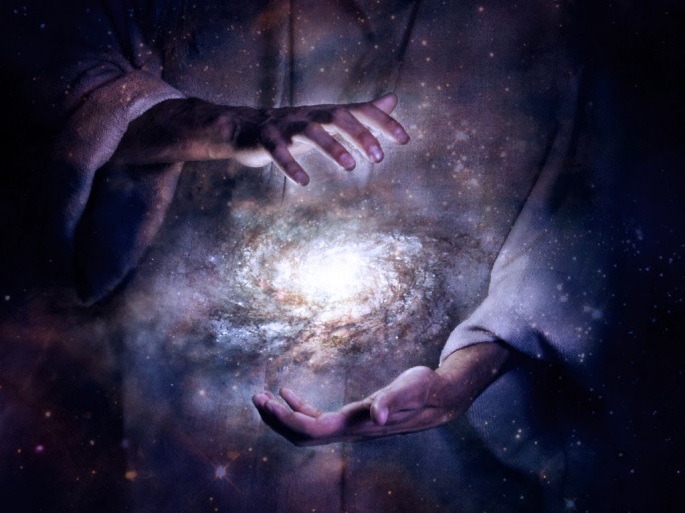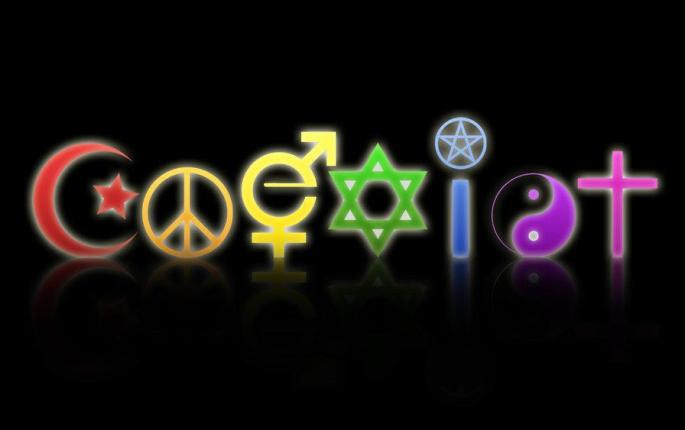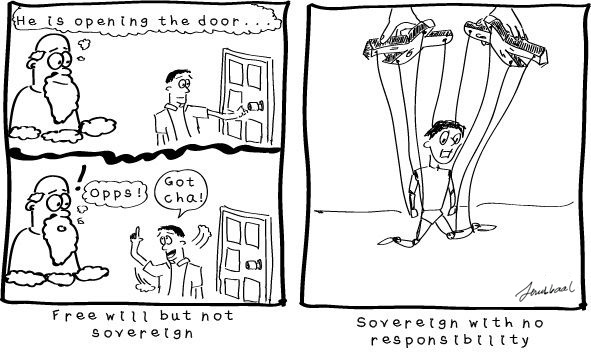Romans 8 is a very common chapter in the Bible, but it really is powerful. The passage starts by explaining how Jesus stepped in to take our place for our punishment, and that we no longer see the consequences of those punishments that we so well deserve. Next it explains the importance of the role of the Holy Spirit in our lives as Christians and the differences between leading a life with human values and leading a life with godly values. Finally it explains how Christians become children of God. Creation itself is waiting for the day that the children of God will be revealed.
Therefore, there is now no condemnation for those who are in Christ Jesus,
The passage starts out with a strong statement, saying that those who have accepted Jesus are not sentenced to punishment. We do not need to fear the consequences for our sinful actions.
2 because through Christ Jesus the law of the Spirit who gives life has set you free from the law of sin and death.
We are not condemned because the Holy Spirit gives life through the act of Jesus on the cross. Originally, the Fall brought sin and death (as a consequence of sin) into the world, but now the Spirit is giving us life because of Christ’s work on the cross.
3 For what the law was powerless to do because it was weakened by the flesh, God did by sending his own Son in the likeness of sinful flesh to be a sin offering. And so he condemned sin in the flesh,
The Old Testament law did not have the ability to save us. It was weak because mankind is unable keep it, so God sent his son Jesus Christ, being fully human and fully God, to take our place. So now our sin is condemned, instead of ourselves.
4 in order that the righteous requirement of the law might be fully met in us, who do not live according to the flesh but according to the Spirit.
The law needed righteousness in order to be fulfilled. Jesus took our sin, which made us righteous, since we were unable to be righteous of our own accord. Now we no longer live as sinful humans do, because we are filled with the Spirit.
5 Those who live according to the flesh have their minds set on what the flesh desires; but those who live in accordance with the Spirit have their minds set on what the Spirit desires.
This verse is simple. Those who live with human goals have human desires, but those who have the Spirit inside of them have spiritual and godly desires.
6 The mind governed by the flesh is death, but the mind governed by the Spirit is life and peace.
And those who do live by human standards are subjected to death. But those who live by godly standards will find life and peace.
7 The mind governed by the flesh is hostile to God; it does not submit to God’s law, nor can it do so.
Living by human standards also means rejecting God and his commandments. It is impossible to serve both humans and God. Relating this back to verse 6, we can make the conclusion that rejecting God is the equivalent of death.
8 Those who are in the realm of the flesh cannot please God.
Again it is emphasized that those who live by the flesh are unpleasant to God. It must be an important point since it is emphasized so many times.
9 You, however, are not in the realm of the flesh but are in the realm of the Spirit, if indeed the Spirit of God lives in you. And if anyone does not have the Spirit of Christ, they do not belong to Christ.
But if we are Christians, then we have the Holy Spirit inside of us. And if we are filled with the Spirit, then we are no longer of the flesh. Those who are not Christians are not filled with the Holy Spirit, and therefore are not of God.
10 But if Christ is in you, then even though your body is subject to death because of sin, the Spirit gives life because of righteousness.
But Christians are given eternal life, even though their earthly bodies should die as a result of sin, because Jesus’ work on the cross is counted to them as righteousness.This can be related back to Genesis 15:6, when Abraham had faith in the Lord and it was “credited to him as righteousness.” The same goes for Christians today. Our faith is credited to us as righteousness, in order for us to fulfill the requirements of the law.
11 And if the Spirit of him who raised Jesus from the dead is living in you, he who raised Christ from the dead will also give life to your mortal bodies because of his Spirit who lives in you.
This verse says that the Spirit gives life to our mortal bodies. Here the word “mortal” comes from the Greek word thnetos, which can be translated as “subjected to death.” We learned earlier that our bodies are indeed subjected to death, but the Spirit will, used in future tense, bring them back to life, just like he brought Jesus back to life. This is done because of the Holy Spirit dwelling inside of us.
12 Therefore, brothers and sisters, we have an obligation—but it is not to the flesh, to live according to it.
In light of all of this, we are called, but not called to anything that holds earthly value.
13 For if you live according to the flesh, you will die; but if by the Spirit you put to death the misdeeds of the body, you will live.
Again it is emphasized that the way of the flesh is death, but by killing those desires, which is only accomplished through the work of the Holy Spirit, life is given to us.
14 For those who are led by the Spirit of God are the children of God.
Not only do those who have the Holy Spirit belong to God, but they actually become children of God.
15 The Spirit you received does not make you slaves, so that you live in fear again; rather, the Spirit you received brought about your adoption to sonship. And by him we cry, “Abba, Father.”
Since Christians belong to God, he could have easily made us his slaves. But he did not. He did not want us to be afraid again (saying again because our past life of sin creates fear), but instead he adopted us as his own. Now we call him our own Father. The word “Abba” means father, but it is an intimate, childlike way of saying it. This shows how truly personal God is.
16 The Spirit himself testifies with our spirit that we are God’s children.
Now this is interesting. Since the Spirit is inside of us, he can communicate with us. He testifies that we are in fact children of God.
17 Now if we are children, then we are heirs—heirs of God and co-heirs with Christ, if indeed we share in his sufferings in order that we may also share in his glory.
Even more than being his children, we become heirs of God, someday to inherit his kingdom. We even become co-heirs with Christ. But this does mean that we must suffer like he did to also receive glory like he did.
18 I consider that our present sufferings are not worth comparing with the glory that will be revealed in us.
Even though we suffer now, it is incomparable to the glory that will come at a later date. Basically saying, it is so well worth it.
19 For the creation waits in eager expectation for the children of God to be revealed.
I thought this verse was especially interesting. All of God’s creation is waiting, and waiting eagerly, to see who the children of God are.
20 For the creation was subjected to frustration, not by its own choice, but by the will of the one who subjected it, in hope 21 that the creation itself will be liberated from its bondage to decay and brought into the freedom and glory of the children of God.
Not only does creation wait, but it is frustrated for having to wait so long. But it does not want to be frustrated. So who caused it to be frustrated? Clearly God is the one who is in control of everything, so he must have subjected creation to frustration. But why? Verse 21 says that it was done in the hope that it will be no longer decay, but will be glorified with the children of God.
Overall, this passage is very important to Christian theology. It pretty much sums up the way that we are saved through Jesus Christ. It also explains a few of the roles of the Holy Spirit, and our role as part of God’s creation. This passage could be studied over and over again, and new ideas could still be gleaned from it.








